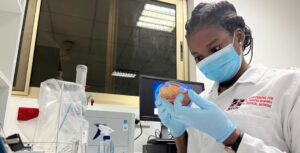Why scientists seem to change their minds (5)
Reason 5: Someone else misinterpreted the results
Yesterday I mentioned that scientists sometimes misinterpret what they observe but of course it is not only scientists who interpret scientific findings. Journalists, who wish to make scientific findings into compelling news stories are sometimes guilty of misinterpreting (and sometimes downright misreporting) scientific findings. So for example, a study which demonstrates that individuals who consume a small amount of chocolate every day have a lower risk of developing a certain type of cancer, may be reported as ‘Scientists prove that chocolate is good for you!’. Of course this headline does not accurately convey what the study proved. Unfortunately, in a few months’ time, if another study shows that eating chocolate is positively correlated with a different disease, you might get another headline announcing ‘Scientists say chocolate is bad for you!’. In this case the scientific findings of both studies may well have been correct but to a non-scientist reading newspaper headlines it may seem as if scientists just can’t get it right! The balance between writing compelling scientific news stories and providing accurate information on the limitations of scientific findings is an area of on-going tension between scientists and journalists.
Next — Reason 6: The entire dataset was not considered




